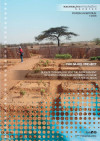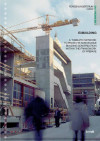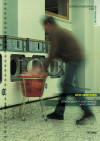Suchergebnisse
Contracting as a instrument for renovation

Development of contracting models for comprehensive renovation service packages.
The Sahel Project

Silicate technology for the improvement of water uptake and nutrient storage in marginal soils
Forschungsforum
1/2006
Herausgeber: BMVIT
Englisch, 6 Seiten
Downloads zur Publikation
First passive-house school reconstruction

Factor 10 refurbishment of the General Secondary School II and Polytechnic School of Schwanenstadt (Upper Austria) with prefabricated wooden façade elements and with a comfort ventilation system.
E3 Building

A thematic network to promote sustainable building constructio within the framework of PREPARE
Forschungsforum
1/2001
Herausgeber: BMVIT
Englisch, 6 Seiten
Downloads zur Publikation
Homeservices by the company of tomorrow
Sustainable services in co-operation with the housing sector will be investigated, their effects on environment, employment, acceptance by consumers, hindrances as well as prerequisites for sustainable facility management and a new positioning of concierge systems analysed.
Architectural Concept for Musicians
Starting from the special needs of a specific user group, an Architectural Concept for Musicians will be proposed and realized, with Housing as principal functional usage.
Eco-Services

Strategies for sustainable development
Forschungsforum
4/1999
Herausgeber: BMVIT
Englisch, 6 Seiten
Downloads zur Publikation
Fair market conditions for virtual power plants
Analysis of technical, economical and regulatory conditions to get fair terms under competition in the liberalised market for virtual power plants on renewable energy basis.
S I P settlement models in passive house quality
Research, development and realization of integral building concepts in passive house quality!
Urban Future - "Resource Efficient City of Tomorrow"
Challenges fort he cities of tomorrow with research issues referring to resource management, efficiency and technology development
Linking Low Carbon Technologies with Low Carbon Society

The project „Linking Low Carbon Technologies with Low Carbon Society“ was conducted on behalf of the Federal Ministry of Transport, Innovation and Technology. In the course of the project a number of recent empirical studies on rebound effects were analysed. Based on this comprehensive analysis an overview of strategies for rebound management was compiled and policy recommendations for the technology sector were developed.
Sanierung PRO!

The goal of the project is the development of a guideline, which supports builders and planners or consultants in the organization and monitoring of inhabitant integration into the reorganization processes of multi-storey housing.
home dreams

Listening to the inhabitants of innovative buildings and using their satisfactory and unsatisfactory experiences as the basis for drawing up practice based criteria and recommendations for a quality, user-orientated building policy. The target groups are funding bodies, building contractors and town planners.
Comfort for sustainability

Research project on comfort and on the health and recreational value of passive houses
Smart Metering consumption
The project Smart Metering consumption focused on the energy consumption of the future smart metering infrastructure - an issue not widely discussed until now.
old house? old house!

The renovation and restructuring of existing housing stock using modern, ecologically efficient building technology as a means for developing Assisted Living Centres for senior citizens within an urban context
Energy Demand by Households and Household Characteristics
Analysis of private households' energy expenditures and interrelations between socio-economic characteristics and energy consumption
Virtual power plants and DSM
For the cost efficient and lasting energy supply from ecological sources, wind, photovoltaic and biomass have to be integrated in existing grids. New methods for DSM and virtual power stations are investigated, to improve the control behaviour.
Carless Tourism In Austria

The valleybus project Lungau, Murau, Nockgebiet - an innovative pilot scheme
Forschungsforum
3/1995
Herausgeber: BMVIT
Englisch, 6 Seiten
